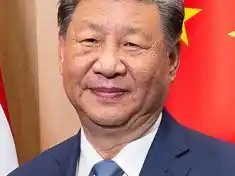
The ongoing trade war between the United States and China has created a complex landscape of economic opportunities and challenges for countries around the world. For African nations, this geopolitical tension presents a unique chance to reposition themselves in the global trade ecosystem.
As the world’s two largest economies impose tariffs and engage in a battle for market dominance, African countries can leverage this situation to enhance their economic prospects, attract foreign investment, and diversify their trade partnerships. This analysis explores the multifaceted ways in which African nations can capitalize on the trade war, ultimately fostering sustainable development and economic growth.
At the heart of the U.S.-China trade war is a struggle for technological supremacy and market access. As both countries seek to protect their domestic industries, they are increasingly looking beyond their borders for alternative sources of goods and services.
This shift opens the door for African countries to step in and fill the gaps left by the disruption of traditional supply chains. For instance, as China faces rising labour costs and tariffs on its exports, African nations with abundant natural resources and lower labour costs can position themselves as attractive alternatives for manufacturing and production. Countries like Ethiopia, Kenya, and Nigeria, which have been investing in industrialization and infrastructure development, stand to benefit significantly from this trend.
Moreover, the trade war has prompted both the U.S. and China to reassess their trade relationships with other countries. The African Continental Free Trade Area (AfCFTA), which came into effect in 2021, provides a robust framework for intra-African trade and economic integration.
By strengthening regional trade ties and reducing tariffs among member states, African countries can create a more competitive market that attracts foreign investment. As U.S. and Chinese companies look for new markets to enter, they may find the AfCFTA region appealing due to its potential for growth and access to a combined market of over 1.3 billion people. African nations can actively promote their markets to these companies, showcasing their resources, labour force, and investment opportunities.
In addition to attracting foreign investment, African countries can also enhance their export capabilities by diversifying their trade partners.
The trade war has led to a reevaluation of supply chains, with many companies seeking to reduce their dependence on China. This presents an opportunity for African nations to establish themselves as reliable suppliers of goods and services to both the U.S. and other global markets.
By investing in sectors such as agriculture, textiles, and technology, African countries can increase their export volumes and create jobs for their citizens. For example, countries like Ghana and Côte d’Ivoire, which are major cocoa producers, can explore new markets for their products, capitalizing on the growing demand for sustainable and ethically sourced goods.
Furthermore, the trade war has highlighted the importance of technological innovation and digital transformation. As the U.S. and China compete for technological leadership, African countries can seize the opportunity to invest in their tech ecosystems.
By fostering innovation hubs, supporting startups, and investing in education and skills development, African nations can create a vibrant tech landscape that attracts investment and talent. Countries like Nigeria and South Africa have already made strides in this direction, with burgeoning tech scenes that have garnered international attention.
By positioning themselves as tech hubs, African countries can not only benefit from the trade war but also contribute to the global digital economy.
Another critical aspect of the trade war is the increasing focus on sustainability and environmental responsibility. As consumers and governments around the world demand more sustainable practices, African countries can leverage their natural resources and commitment to sustainable development to attract investment.
The continent is rich in renewable energy potential, with abundant solar, wind, and hydro resources. By promoting green energy initiatives and sustainable practices, African nations can position themselves as leaders in the global transition to a low-carbon economy.
This not only aligns with global trends but also enhances their attractiveness to foreign investors seeking to align with sustainable practices.
However, to fully capitalize on the opportunities presented by the U.S.-China trade war, African countries must also address several challenges. Infrastructure deficits, regulatory hurdles, and political instability can hinder their ability to attract investment and compete in the global market.
Therefore, African governments must prioritize infrastructure development, streamline regulatory processes, and create a conducive business environment. By fostering stability and transparency, African nations can build investor confidence and create a more attractive landscape for foreign direct investment.
Additionally, African countries must work collaboratively to strengthen their regional integration efforts. The AfCFTA is a significant step in this direction, but its success will depend on the commitment of member states to implement its provisions effectively.
By harmonizing trade policies, reducing non-tariff barriers, and enhancing connectivity, African nations can create a more integrated market that is better positioned to compete globally.
This collaborative approach will not only enhance their bargaining power in international trade negotiations but also enable them to present a united front in attracting investment.
In conclusion, the U.S.-China trade war presents a unique opportunity for African countries to reposition themselves in the global trade landscape.
By leveraging their natural resources, enhancing their export capabilities, investing in technology and sustainability, and fostering regional integration, African nations can capitalize on the shifting dynamics of global trade.
However, this requires a concerted effort from governments, the private sector, and civil society to create an enabling environment for growth and development.
As African leaders navigate this complex landscape, they must remain proactive and strategic in their approach, ensuring that their countries are well-positioned to benefit from the opportunities that arise from the ongoing trade war. By doing so, they can pave the way for a more prosperous and sustainable future for their citizens and the continent as a whole.






0 Comments